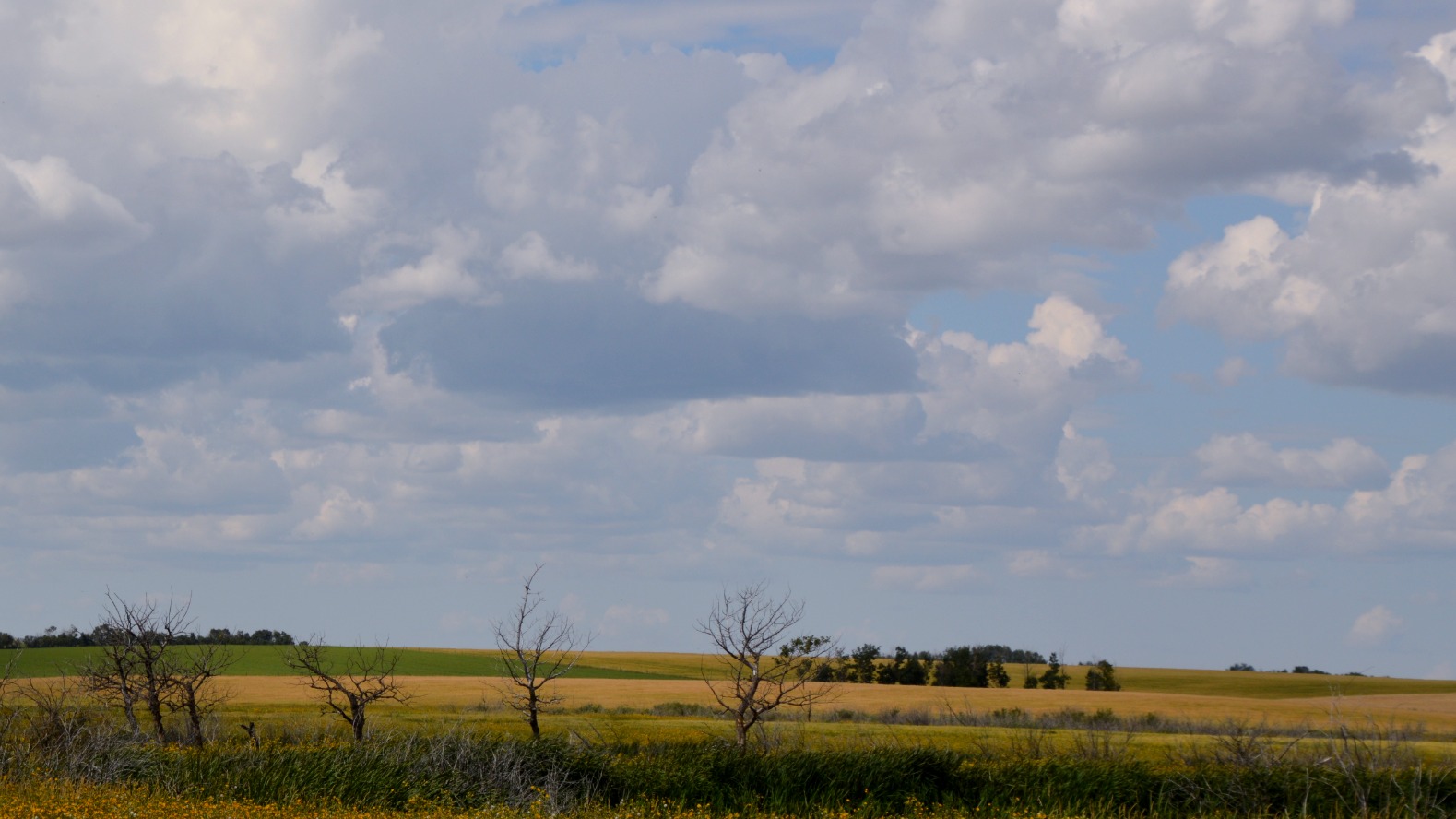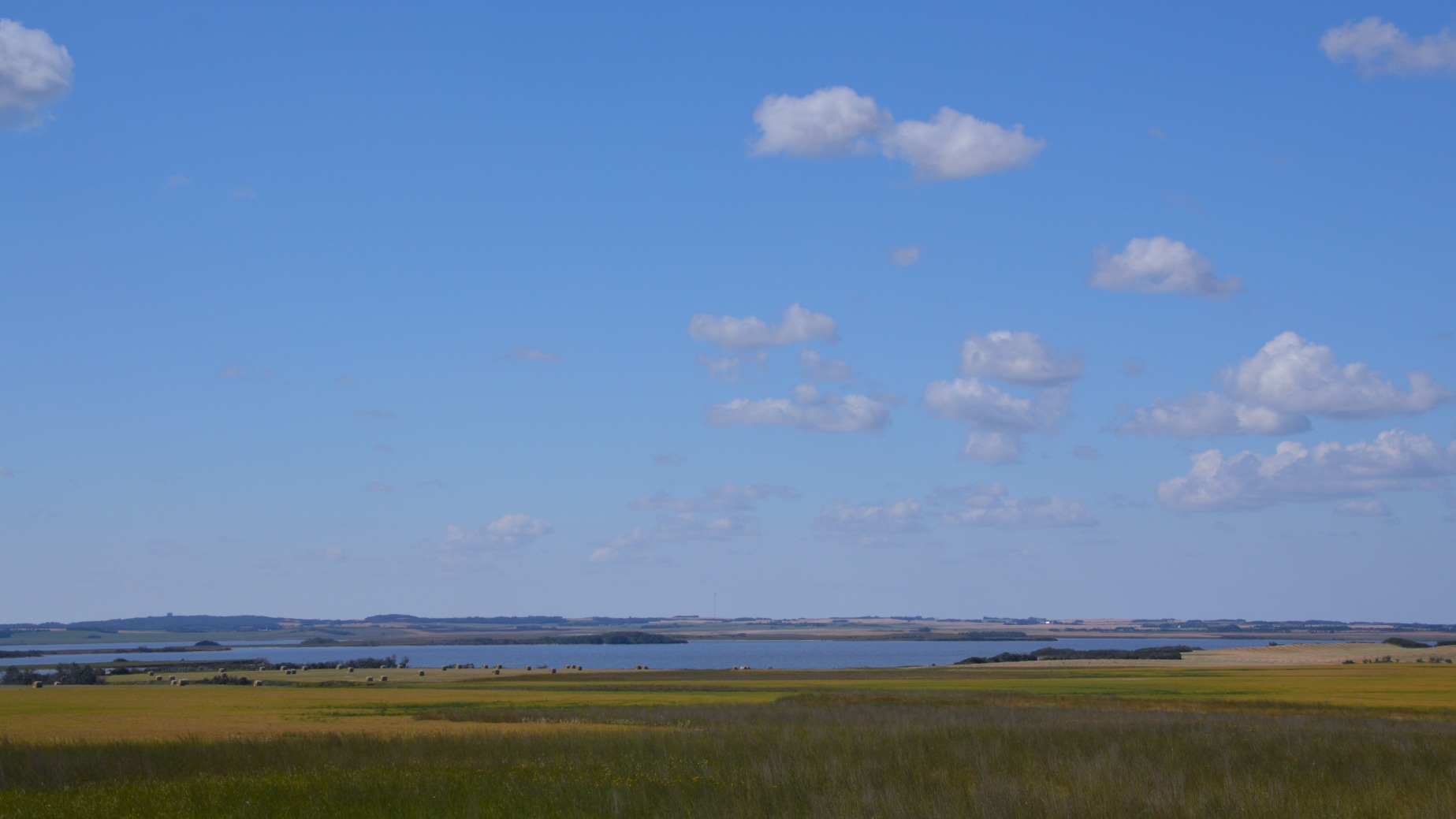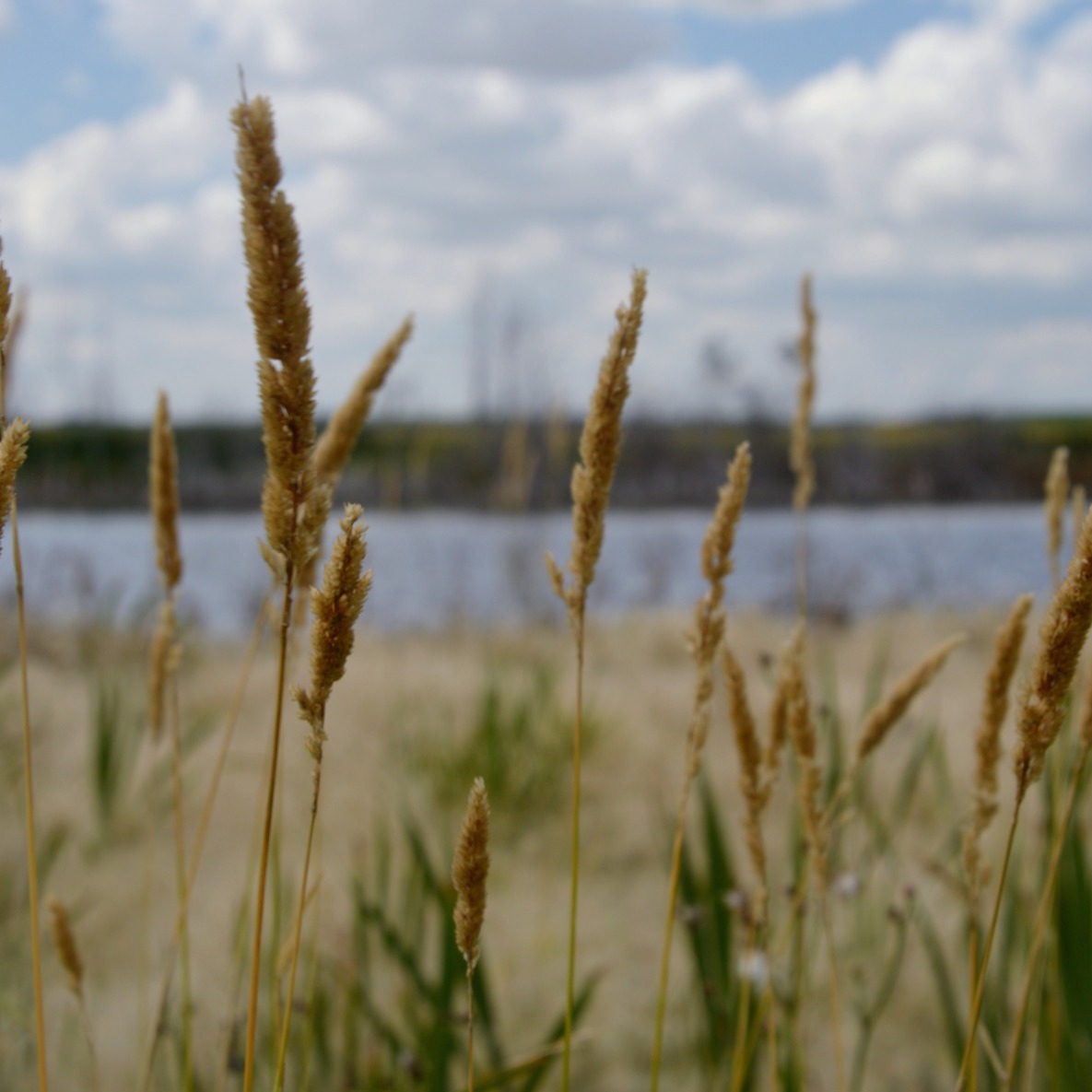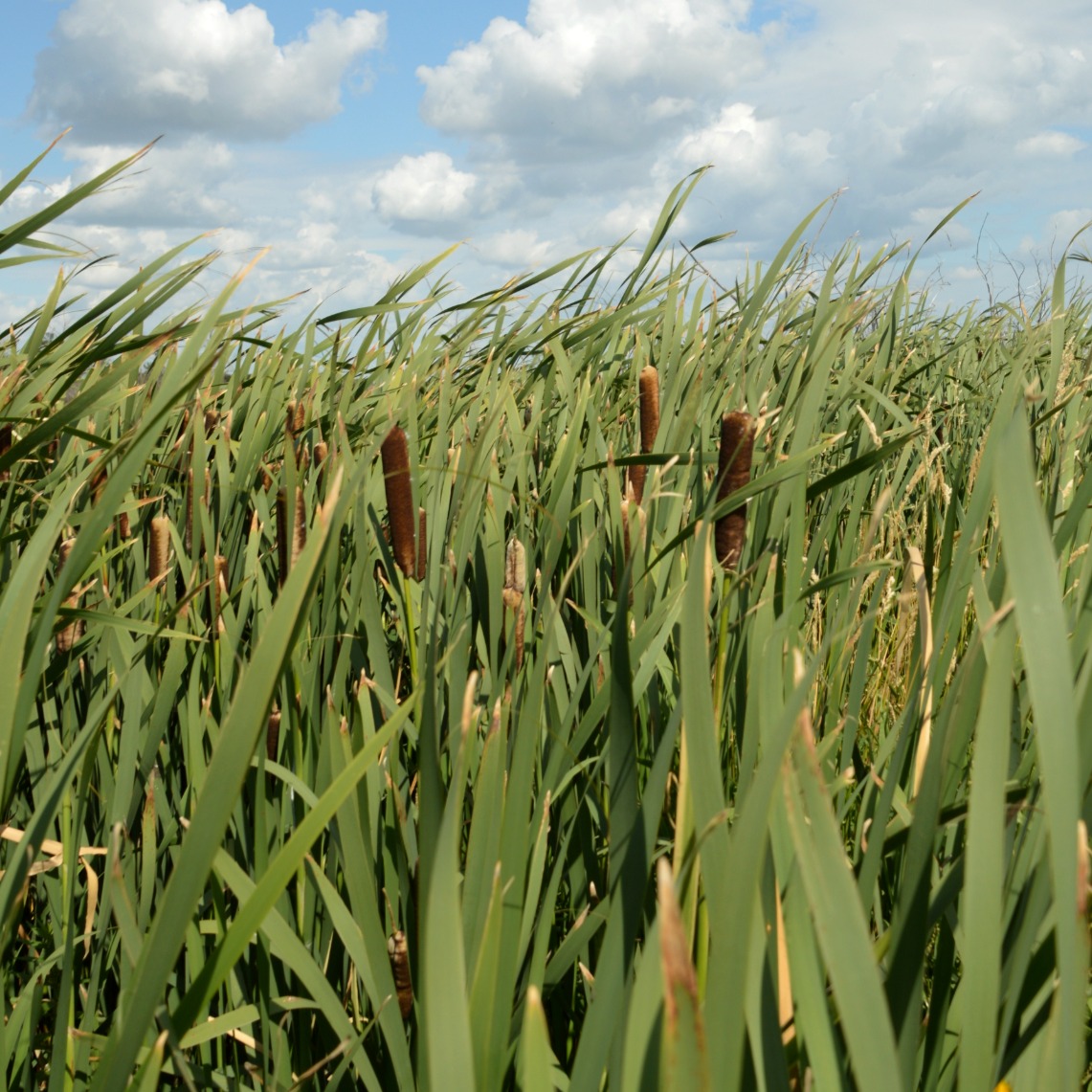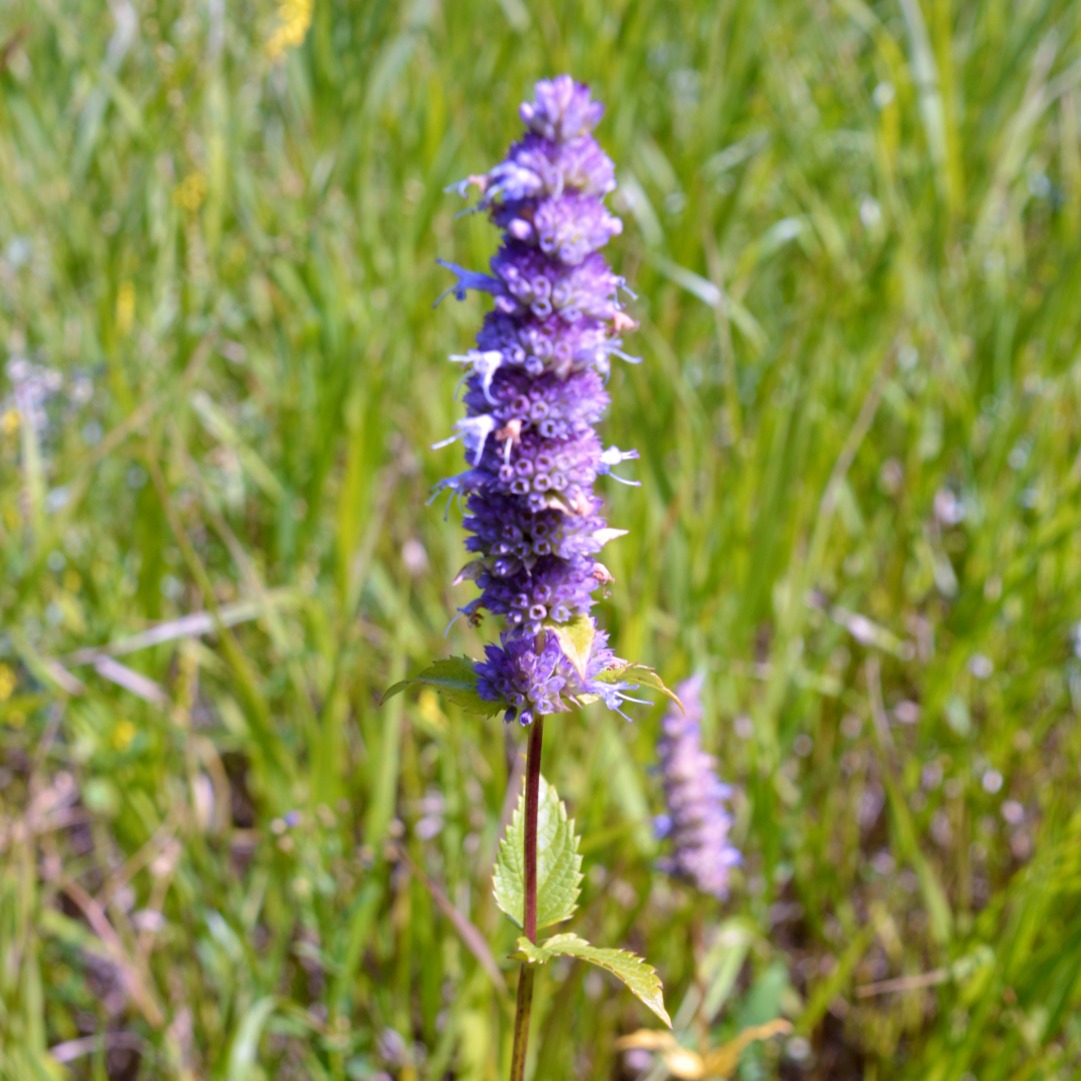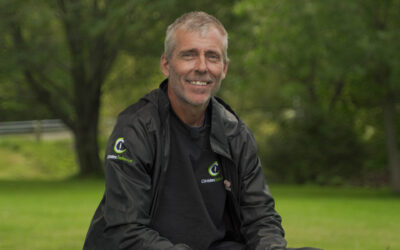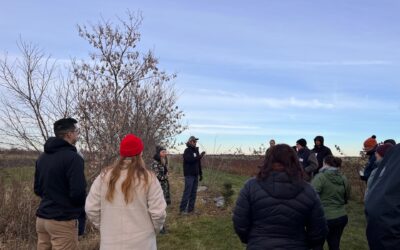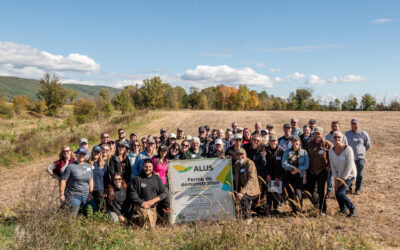Ryan Hering from Bruno, Saskatchewan, addresses sustainability by enhancing wetlands
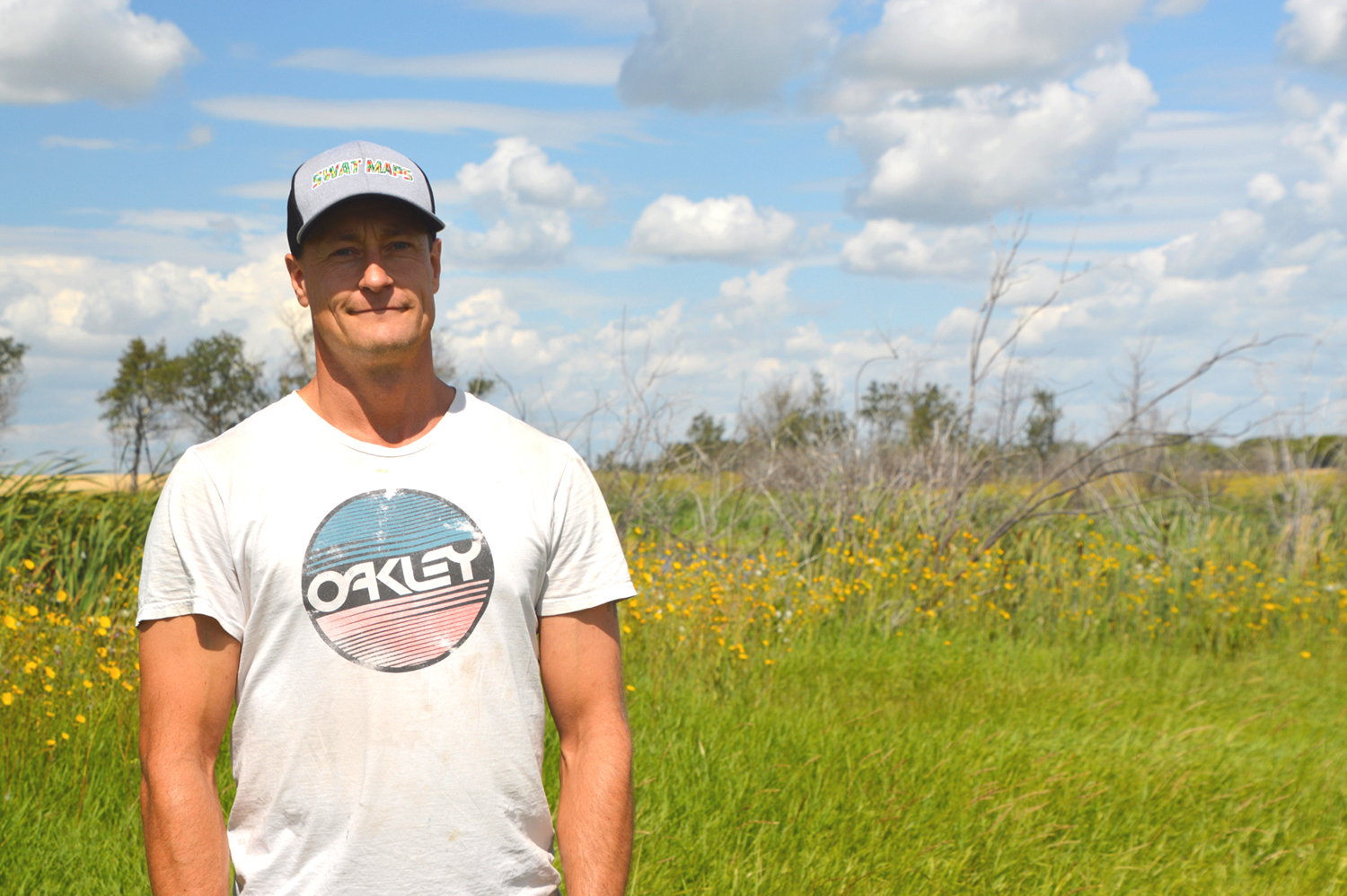
In the midst of Saskatchewan’s vast prairies, this grain farmer is weaving sustainable agriculture practices and nature protection into his everyday work.
As the owner of Hering Farms Inc., a 4,800-acre operation in the small community of Bruno, Ryan Hering works closely with ALUS on environmental sustainability projects that align with his business model.
Building Sustainability on Agricultural Lands
Ryan first became involved with ALUS as a participant in 2016, when he enrolled 175 acres of his farm into his first environmental sustainability project. In 2020, he enrolled another 76 acres, for a total of 251 acres so far.
“The first thing that attracted me to ALUS was the flexible terms,” says Ryan.
“It isn’t a long-term binding contract, which helps with changing plans down the road, and it could be combined with the Canadian Agricultural Partnership, as well” he continues.
Ryan’s perspective on farming and environmental management convinced him that ALUS would make an effective partner to further his work, providing more sustainability across his operation.
Ryan is a graduate of the University of Saskatchewan with a Bachelor of Science in Agriculture. He farms alongside his parents, who have been farming in the area since 1979.
He is one of 30 producers in the region who has enrolled sections of their land with ALUS WUQWATR. To date, this ALUS program has expanded to include over 3,500 acres in the region’s four sub-watersheds: Wascana Creek, Upper Qu’Appelle River, Lanigan-Manitou and the Last Mountain Lake watershed.
Improving outcomes with tame grasses
Across the hundreds of acres that he has enrolled in ALUS, Ryan’s projects focus on building a more productive and resilient landscape. One way he’s doing this is by growing tame forage, a type of deep-rooted grass that has a multitude of management and environmental benefits.
“ALUS was of interest to me as I am trying to sequester carbon and take care of the soil; working with nature, not fighting it,” says Ryan.
The Bruno area is rife with extreme soil salinity. Crops at Hering Farms were struggling to compete against weeds and soil erosion, challenges compounded by the soil composition. By introducing saline tolerant forage species through ALUS, Ryan has made noticeable progress on each of these fronts.
The tame forage is effective at extracting nutrients from the soil and consequently reducing soil salinity, while the grass’ deep root system help secure the topsoil layer. Moreover, the deep roots trap atmospheric carbon and provide long-term storage.
The benefits are multi-fold, as the tame forage addresses these environmental challenges, it eases the burden on the Ryan’s grain crops.
Sustainable agriculture practices bring benefits to farm and to wildlife
Ryan has also worked with ALUS to enhance wetlands, waterways and other riparian areas. By improving the health of these watercourses, Ryan is contributing to cleaner water and increased biodiversity on his farm. The projects also benefit Ryan’s wider community, through cleaner water downstream and a richer, more resilient ecosystem.
The benefits are palpable, especially when it comes to wildlife conservation. As the positive effects of Ryan’s hard work take hold, he has spotted more and more wild animals on his land.
“I even started noticing more wildlife, like mule deer, rabbits and coyotes, over the last few years in areas where my ALUS projects are located,” says Ryan.
Building on his success over the past few years, Ryan is enthusiastic about the future. Looking ahead, he is considering enrolling smaller zones on his property to target other areas struggling with soil salinity and erosion.

